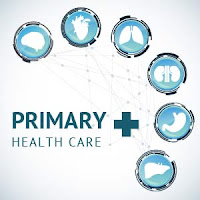Group 6: With the current water crisis that is looming, how will it affect the social inequality experienced in our country?
South Africa is currently facing a critical condition, which may lead to devastating results if it doesn’t rain soon. This simply emphasises that there is no alternative measure that could be implemented to replace water.
SA even post-apartheid still has many social inequalities. When there is no water left, social inequality will increase.
Access to water is a human right often opposed by the view of water as a material that needs to be priced to ensure efficient and sustainable use. Our country will need to align to ensure for peaceful and effective integrated water resource management and sustainable use. However, the social inequality within the country remains, which could cause great social-injustice problems to arise during this drought.
We all live in different areas, which can range from disadvantaged to privileged. People in well-equipped areas has easy access to resources such as taps, toilets, baths etc. and all these require large amounts of water. The privileged can also prepare for day zero by buying Jojo tanks and stock up on water, while the poor can’t do that because they have insufficient funds. While people from the disadvantaged areas have to share taps or even drink water from unhygienic rivers, where people do laundry, bath, urinate and defecate. The consumption of unhygienic water can lead to life threatening diseases such as dysentery, arsenicosis, polio, trachoma, typhoid fever, cholera and diarrhea. The reason why they consume unhygienic water, can be due to being uneducated, due to inequalities in South Africa.
But we cannot be bias and taking in consideration that the “privileged” pay for their water consumption it is unjust that it is not seen as a problem that they too will have to stand in lines at water collection points once day zero commences. We do realize that the underprivileged is used to this however, the privileged pay hefty water bills monthly for water to come to their houses. Commonly the privileged would fix a leaking tap in their homes because they realize the amount of money literally going down the drain whereas communal taps will run in abundance and no one would care to close it because it’s “not their problem”.
Meaning only those with high living standards will be able to afford the highly valuable and exorbitant price resource of adequate healthy water and the majority will suffer.
As the saying goes prevention is better than cure and to prevent some to most of the above mentioned diseases we can educate communities through public events, teach people of all communities the importance of proper hand hygiene without wasting any water and oral rehydration solution recipes. Vaccines can also be received from your nearest clinic or health facility.
The drought will also result in exponential increases in agricultural crop prices and create further social inequalities, because the demand on food is much higher than what the farmers can produce and this causes the poor and middle class families to hardly (if even) provide food for their families. If it doesn’t rain soon this could lead to the majority of our country being malnourished. The drought will cause a ripple effect and not only effect the agricultural crop but all industries.
It is a fact, is that day zero is coming and it’s going to affect us all. Stand together as a nation and save water. Every drop counts.
References:
Citation: Guppy, L., Anderson, K., 2017. Water Crisis Report. United Nations University Institute for Water, Environment and Health, Hamilton, Canada.






Comments
Post a Comment